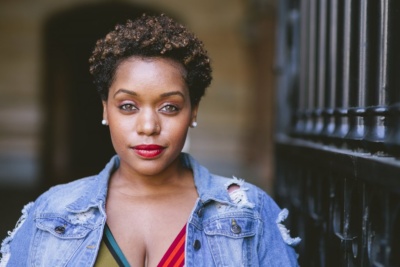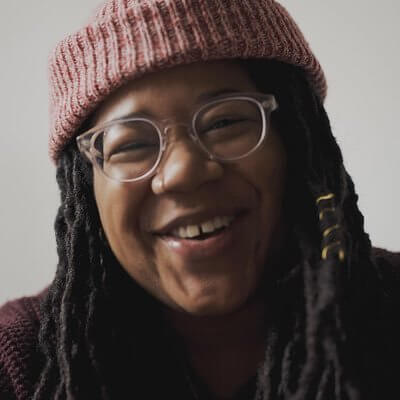By Sincerely Syreeta
In the spring semester of 2010, I was a 21-year-old woman attending Temple University full-time, working part-time and raising two daughters under the age of 6. It was one of the toughest times of my life, but the grind was worth it because I was in pursuit of something great: my education.
I saw the value of education not just in what both of my parents said throughout my childhood, but also in the decisions they made concerning our livelihood.
My father attended college and had a successful career working for the federal government in law enforcement. I watched my mother pursue her bachelor’s and master’s degrees while building a successful career as a woman in tech and then banking. They’ve both since retired before age 60 and become full-time entrepreneurs.
Growing up in Pittsburgh, I watched my mother and father co-parent well enough, and together they ensured that I wanted for nothing. We lived in nice homes, they drove nice cars, and by the time I was entering my teen years after my mom and I relocated to Delaware, they both had six-figure incomes.
They also, by then, had a daughter who had clearly received their messages about the importance and value of education and its impact on a family’s livelihood. In addition to participating in countless extracurricular activities, I started working at 11 as a student tutor, for which I received a modest stipend, and I continued to earn my own money from that point on. I also excelled academically—even graduating high school a year early and entering Temple as a transfer student instead of a full-fledged freshman.
I was a young woman with dreams and goals for my future. I had a vision (of sorts) for my life—one that I was certain would include college, where I would pursue journalism or strategic communications (spoiler alert: journalism won).
At the age of 17, I also became a teen parent. I accepted full responsibility for my actions and decisions. I took a gap year (which would’ve been my senior year of high school), worked three jobs and, after learning that Temple University offered family housing, applied and got in.
I packed myself and my daughter up, drove to Philly from Delaware and moved on campus.
During my first year there, neither of my parents could continue covering the rising costs of college. Thankfully, because I had a child, I was considered independent, so my financial aid need was determined by my tax return and not theirs. This also meant that most of my financial aid would be grants…and student loans. Mostly student loans.
I continued to excel academically, making the dean’s list, but I struggled in what felt like every other area—most notably, financially. My mother convinced me that it was okay to seek help in the form of welfare while I pursued my education. It wasn’t a long-term indictment on who I am, where I come from, and my capabilities (basically everything society has said); it was simply a short-term solution for survival while I worked to improve the long-term quality of life for my family.
So, I did what I had to do at that time.
Along the way, I was frustrated and wanted to quit many times, but none more than when I eventually had to drop out of college for a year so that I could continue attending. Crazy, right?
I was considered an out-of-state student, which meant a higher tuition bill. I did some research and learned that if I lived in the state for a year without attending college, I could then apply to be declared an in-state resident.
I packed us up again, moved back to Pittsburgh for a year, worked three jobs and then returned to family housing on Temple’s main campus with my eldest daughter and my youngest on the way. I continued to work hard, going to school year-round and working multiple jobs to provide while trying my best to map our future. By that time, I dreamt of writing long-form pieces and one day becoming an editor-in-chief at a major magazine. However, I often found myself discouraged because I majored in print magazines and the one thing so many of our professors continued to tell us was that “print is dying” and we needed to respond to the shift.
One of our class assignments included starting a blog in hopes of developing our digital footprint. That assignment led to the creation of my blog, which would eventually grow to become a brand, and then a business.
After many twists and turns, I graduated with my Bachelor of Arts in journalism, started freelancing for a major magazine and other outlets, did some on-camera work, and eventually made my way to the radio airwaves of Philadelphia. There were a few other jobs sprinkled throughout that process—a year serving as an AmeriCorp member and working as an administrative assistant making $40K only to be laid off five months after I started.
That layoff sparked flashbacks of when my mom was laid off from a company to which she had given years of her life. Like so many others in my generation, I watched how hard the Great Recession hit our parents and family members. Therefore, keeping all our eggs in one basket is neither ideal nor—given what it costs to survive—feasible.
And so, we hustle. Hard.
I currently host Happy Hour on WURD Radio (96.1 FM/900AM), 4-7 p.m. Monday-Thursday; in this role, I get to do something I absolutely love: interviewing people. WURD is the only Black-owned and operated radio station in the state of Pennsylvania and one of only a few in the nation. As a now 31-year-old Black woman, I take great pride in contributing to its legacy and to having a platform for my culture, getting to interview the beautiful people who represent it proudly every single day.
In addition to that stream of income and other radio-related work, I continue to freelance, run my company supporting clients with their marketing and communications needs, and occasionally clock in as a ride-share driver when time allows. The most important thing for me right now is the flexibility of it all. This flexibility enables me to be there for my children, who are now 10 and 14, in ways that are important to me and them.
I still struggle financially, but I got us off welfare some time ago as planned, and I manage to keep the bills paid. While it isn’t the ideal financial situation, I know this current setup is not my forever one. I’ve learned enough about myself to know that a full-time job isn’t ideal for me, but if the right opportunity were to present itself, I would be open to exploring its potential.
But the truth is: I fall a little more in love with radio and journalism every day. I like my freedom. I like being able to have a pulse on the job and the people on my own terms. I need that in order to feel secure in my livelihood and wellbeing—knowing that I’m making the kind of difference I want to make on my terms.
I’m about a year into radio so, in reality, I’ve started a whole new career. I went from writing multiple pieces on deadline daily, to now writing scripts and notes for my show that I then share live on-air daily. I’m excited to see what all I can do in this new field so when I look down the road through the lens of an ideal entrepreneurship situation, it includes everything that I’m doing right now, just at a higher level—earnings included.
During that spring semester of 2010, The Temple News did a documentary that followed a day in the life of three students with three very different stories. I was one of them. In that documentary, they asked us if college was worth it. I responded:
“Is it worth it? It’s worth it for what you make it—for whatever it means to you.”
I stand by that still, not just when it comes to college but also for employment and general decisions related to you and your family’s livelihood.
You determine your value and that of everything connected to you. Do all that you can to ensure the decisions that affect your livelihood reflect your deepest values—and your own value, your own self-worth.

WURD Radio is one of more than 20 news organizations producing Broke in Philly, a collaborative reporting project on economic mobility. Read more at brokeinphilly.org or follow at @brokeinphilly.




